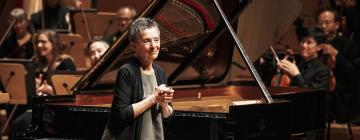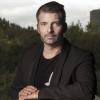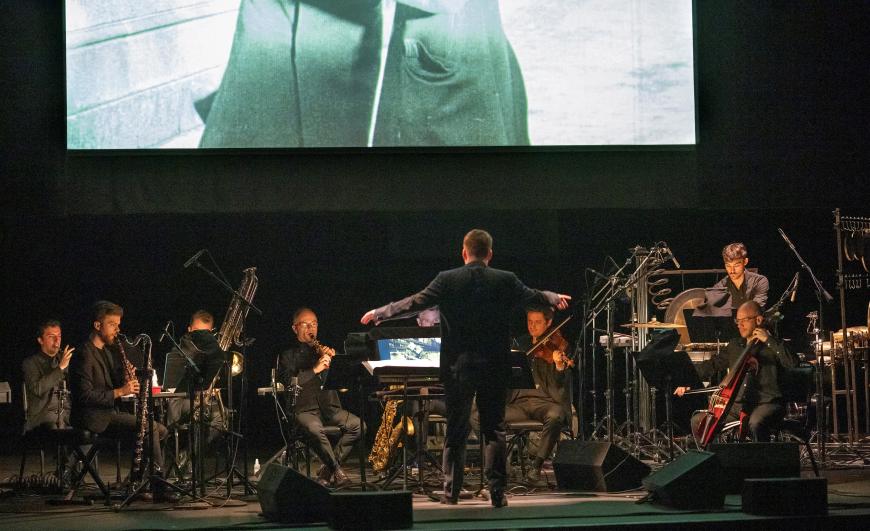
If not for COVID, the superlative contemporary-music group Ensemble intercontemporain (EIC) would have had its debut in the 805 area code back in 2020 at the Ojai Music Festival, where EIC founder Pierre Boulez served as music director for several summers.
As things shook out, EIC’s debut in this region didn’t arrive as a broad concert sampling of what the famously flexible group has to offer. Instead, it came in the form of an overqualified pit band for a specialty project, Olga Neuwirth’s fresh score for director Hans Karl Breslauer’s recently rediscovered 1924 film Die Stadt ohne Juden (The city without Jews).
On Saturday night at the Lobero Theatre in Santa Barbara, in a concert/screening presented by UCSB Arts & Lectures, the ensemble was boldly led by Matthias Pintscher (in his last year at the EIC helm) in an intriguing, fascinating, but somehow unsettled sight-to-sound adaptation. (The program would repeat on Monday, Jan. 30 at Walt Disney Concert Hall.)
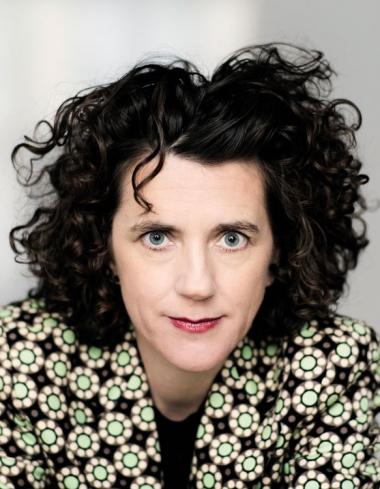
Neuwirth, an Austrian Jew alarmed by the rise in fascism and anti-Semitism around the world, was aware of the original 1922 novel by journalist Hugo Bettauer, which addressed the then-festering anti-Semitic forces in Germany and Austria via a fantastical plot in which an economically troubled Vienna scapegoats Jews and puts into effect an expulsion edict. Turns out that life without Jews in Vienna goes badly. Little did the novelist or filmmaker realize how true to life the outlandish premise would soon become during the Nazi dictatorship.
In 2015, a full version of the film was discovered in a humble flea market. Neuwirth eagerly accepted the task, commissioned by the Wiener Konzerthaus, of diving into the by now familiar enterprise of creating a modern score for the silent film, and it premiered in 2019.
Unfortunately, Breslauer’s film itself ultimately disappoints, lapsing from a strong, satirical first half into a kind of melodramatic, farcical mush that undermines the potential and message. A little expressionism à la Fritz Lang could have gone a long way. And yet the new musical component alone is worth the price of admission.
Neuwirth, who has often drawn on pop culture and nonclassical sources (as in her 2009 Remnant of Songs: An Amphigory for viola and orchestra and a 2003 opera based on David Lynch’s Lost Highway), has concocted a score of beguiling mystery and retroactive sociohistorical emotional firepower. Her piece is fascinating and intentionally soft-focused, a dream- and nightmare-like hybrid of references to archival period music of the 1920s — shades of dance, early jazz, and washes of Kurt Weill — put through a clearly contemporary filter and sound palette.
The nonet of instruments features electric guitar, saxophone, electric piano, and electric cello alongside more traditional acoustic instruments, and samples are flown in and out of the mix to further distort our sense of time, place, and reality. Dizzy juxtapositions, in fact, play a strong role in Neuwirth’s conceptual overview of the story.
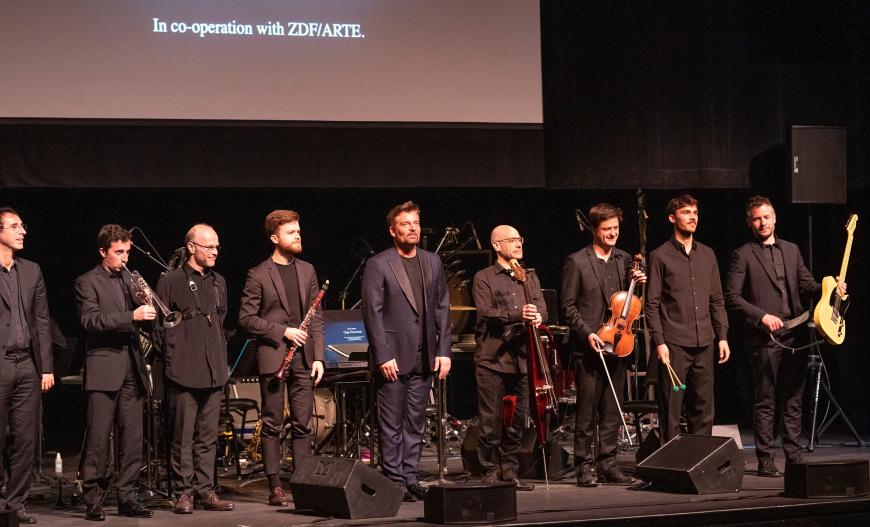
In an odd way, her music is willfully out of sync with the sentimental, exaggerated, and caricatured aspects of the film itself, serving a subversive function as traditional film-composer logic goes. She serves the image and story on her own contrary terms. The atmospheric and sometimes ambivalently dissonant character of the music seems to suggest different levels of future foreboding — hinting at the coming storm of anti-Semitic oppression climaxing in World War II and the currently continuing saga of anti-Semitic sentiments large, subtle, and systematic.
While the film itself ends with a well-meaning and idealistic axiom about the equality and brotherhood of man, the wiser and cooler-headed musical element ends with a quasi-resolving major chord. But in a piece with no strong key centers, the pasted-in “happy ending” evokes a smiling ghost adrift in a querulous universe. Neuwirth and EIC have summoned up a sensory experience rich in hypnotic discord, with a cause.
